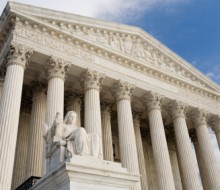Aegerion Pharmaceuticals Inc., a Cambridge, Massachusetts-based subsidiary of Novelion Therapeutics Inc., has agreed to plead guilty to charges relating to its prescription drug, Juxtapid, the Justice Department announced last week.
As charged in a criminal information filed today, Aegerion introduced Juxtapid into interstate commerce that was misbranded because, among other things, Aegerion failed to comply with a Risk Evaluation and Mitigation Strategy (REMS). The resolution also includes a deferred prosecution agreement relating to criminal liability under the Health Insurance Portability and Accountability Act of 1996 (HIPAA). In addition, Aegerion has agreed to settle allegations that it caused false claims to be submitted to federal health care programs for Juxtapid. Aegerion has agreed to pay more than $35 million to resolve criminal and civil liability arising from these matters. Aegerion has also agreed to enter into a civil consent decree of permanent injunction aimed at preventing future violations of the Federal Food, Drug, and Cosmetic Act (FDCA).
The government will continue to hold accountable drug companies that violate laws designed to protect the health and safety of patients,” said Acting Assistant Attorney General Chad A. Readler of the Justice Department’s Civil Division. “Aegerion has agreed to plead guilty to breaking the law. The Justice Department will continue to ensure that taxpayers do not foot the bill when such conduct occurs.”
In a criminal information filed on Sept. 22 in the District of Massachusetts, the United States charged that, from December 2012 to December 2015, Aegerion introduced into interstate commerce Juxtapid, a drug that was misbranded under the FDCA. During this time period, Juxtapid was approved by the U.S. Food and Drug Administration (FDA) to treat patients with homozygous familial hypercholesterolemia (HoFH), a rare disorder, inherited from both parents, that prevents the removal of LDL-C, often called the “bad” cholesterol, from the blood, causing abnormally high levels of circulating LDL-C. The Juxtapid label carried a black box warning that Juxtapid may cause liver toxicity, a serious side effect of using the drug, and the label also warned that Juxtapid may cause gastrointestinal adverse reactions. FDA required a REMS, which is a risk management plan deemed necessary to ensure that a drug’s benefits outweigh its risks, as part of Juxtapid’s approval. The specific purpose of the Juxtapid REMS was to educate prescribers about the risks of liver toxicity and to restrict access to Juxtapid only to those patients with a clinical or laboratory diagnosis consistent with HoFH.
The information alleges that during the relevant time period, Aegerion failed to give health care providers complete and accurate information about HoFH and how to properly diagnose it, and that Aegerion also filed a misleading REMS assessment report. According to the information, Aegerion therefore failed to comply with the required elements under the REMS to assure safe use of Juxtapid, in violation of the FDCA. The information further alleges that Aegerion management and sales personnel distributed Juxtapid not only for the treatment of HoFH, but also as a treatment for high cholesterol generally, without adequate directions for such use. Under the terms of a plea agreement, Aegerion has agreed to plead guilty to these charges and pay a criminal fine and forfeiture of $7.2 million.
In a deferred prosecution agreement to resolve a felony charge that Aegerion conspired to violate HIPAA, 42 U.S.C. §§ 1320d-6(a) and 1320-6(b)(3), Aegerion admitted that it conspired to obtain patients’ personally identifiable health information, without patient authorization, for commercial gain. Under the terms of the deferred prosecution agreement, Aegerion will implement enhanced compliance provisions, including periodic certifications to the government concerning its implementation of those provisions.
Under the civil false claims settlement, Aegerion will pay $28.8 million over three years to resolve federal and state civil liability for causing false claims for Juxtapid to be submitted to government health care programs (Medicare, Medicaid, and TRICARE) arising from its promotion of Juxtapid for patients without a diagnosis of, or consistent with, HoFH; false and misleading statements to doctors that the use of Juxtapid was appropriate in patients with symptoms including high cholesterol, irrespective of whether such patients had a diagnosis of HoFH and despite counter-indications to a diagnosis of HoFH; and alteration or falsification of statements of medical necessity and prior authorizations that were submitted to federal health care programs. The government further alleged that Aegerion defrayed patients’ copayment obligations for Juxtapid, in violation of the Anti-Kickback Statute (AKS), by funneling funds through Patient Services Inc. (PSI), an entity that claimed to be a non-profit patient assistance organization. The federal share of the $28.8 million civil false claims settlement is $26.1 million and the state portion is $2.7 million.
“Aegerion put profits over patient safety and enriched itself at taxpayer expense,” said Acting U.S. Attorney William D. Weinreb for the District of Massachusetts. “Our Office is committed to protecting patient safety and the integrity of federal health care programs, and we will continue to use our criminal and civil authority to ensure that drug companies play by the rules that protect the public, ensure quality of care, and preserve patient privacy.”
As part of the resolution, Aegerion has agreed to enter into a separate civil consent decree to resolve civil liability under the FDCA in connection with its failure to comply with the requirements of the Juxtapid REMS program and its distribution of Juxtapid with labeling that lacked adequate directions for all of Juxtapid’s intended uses. Aegerion also entered into a Corporate Integrity Agreement (CIA) with the HHS-OIG. The five-year CIA requires, among other things, that Aegerion implement measures designed to ensure that its promotional activities and any arrangements and interactions with third-party patient assistance programs comply with the law. In addition, the CIA requires reviews by an independent review organization and compliance-related certifications from company executives and Board members.
“We sometimes require companies to put in place certain measures to more closely manage a drug’s risks when we don’t believe a medicine’s benefits would outweigh its side effects without these risk mitigation strategies,” said FDA Commissioner Scott Gottlieb, M.D. “This might include requiring prescribers to undergo certain training on a drug’s risks, or having providers take steps to more closely monitor patients. By failing to follow the safety requirements that Aegerion had agreed to, the company put patients’ lives at risk and didn’t honor the safety commitments they made as a condition of gaining approval for their drug. This is unacceptable. We will continue to pursue those who skirt the law, and flout patient safety and other post-market commitments, using all of the enforcement tools available to us. Post-market safety requirements are a key element of FDA’s public health protections and we will ensure that they are fulfilled.”
“Today’s plea and settlement with Aegerion shows how the government will hold the pharmaceutical industry accountable for violating important FDA and privacy rules that are intended to keep patients safe and ensure the confidentiality of their information,” said Special Agent in Charge Harold H. Shaw of the FBI, Boston Field Division. “The FBI will continue to investigate companies like Aegerion that profit from exploiting patients who are searching for treatments for serious medical conditions.”
“Our corporate integrity agreement increases individual accountability for board members and company executives and it requires Aegerion to strengthen controls around promotional activities and other interactions with health care providers,” said Chief Counsel to the U.S. Department of Health and Human Services (HHS) Inspector General Gregory E. Demske. “Importantly, the CIA also requires that Aegerion implement controls and monitoring designed to ensure true independence from any charity patient assistance programs to which it donates in the future.”
“Today’s agreement demonstrates that we will not allow pharmaceutical manufacturers to provide the medical community with false and incomplete information about their products, thereby jeopardizing the health and safety of our citizens,” said Special Agent in Charge Phillip Coyne for the HHS Office of Inspector General (OIG). “Nor will we allow corporations to profit at the expense of patient care and their personal information.”
The civil false claims settlement resolves a lawsuit filed by Michele Clarke, Tricia Mullins, and Kristi Winger Szudlo, former employees of Aegerion, under the qui tam or whistleblower, provisions of the False Claims Act, which permit private individuals, known as relators, to sue on behalf of the government for false claims and to share in any recovery. The qui tam suit was filed in the District of Massachusetts and is captioned United States ex rel. Clarke, et al. v. Aegerion Pharmaceuticals, Inc., et al., No. 13-CV-11785 (D. Mass.). Relators will receive $4.7 million from the federal proceeds of the civil false claims settlement.
The government’s resolution of this matter illustrates the government’s emphasis on combating health care fraud. One of the most powerful tools in this effort is the False Claims Act. Tips and complaints from all sources about potential fraud, waste, abuse, and mismanagement can be reported to the Department of Health and Human Services at 900-HHS-TIPS (800-447-8477).
This resolution was the result of a coordinated effort by the U.S. Attorney’s Office for the District of Massachusetts, the Civil Division’s Consumer Protection Branch and Commercial Litigation Branch, the FDA’s Office of Chief Counsel and Office of Criminal Investigations, the FBI, HHS-OIG, and the Department of Labor’s Employee Benefits Security Administration.
Except as to conduct admitted as part of the guilty plea and deferred prosecution agreement, the claims resolved by the civil settlement are allegations only and there has been no determination of liability.



